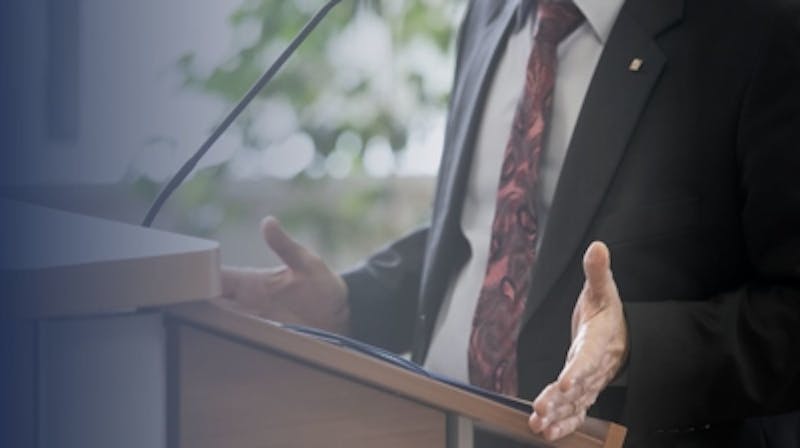
Understanding Expert WitnessesDefinition and Qualifications of Expert Witnesses
Expert witnesses are a cornerstone of personal injury litigation, providing specialized knowledge that is often pivotal in determining the outcome of a case. These individuals are not just well-educated; they possess a depth of experience in their respective fields that allows them to offer informed opinions that carry significant weight in court. To qualify as an expert, one must have a proven track record of reliability and a strong foundational background, whether it be in medicine, engineering, economics, or another relevant discipline. The qualifications required are stringent because the credibility of an expert witness can make or break a case, making it essential for legal teams to vet potential experts thoroughly before bringing them on board.
Types of Expert Witnesses in Personal Injury Litigation
Personal injury cases often involve a tapestry of complexities that require insights from various expert witnesses. Medical professionals are frequently called upon to elucidate the extent of injuries and the projected impact on the plaintiff's life. Accident reconstructionists piece together the events leading up to an incident, providing a visual and scientific narrative that can be crucial for the jury's understanding. Economists and life care planners offer projections of the financial implications of an injury, from lost wages to long-term care costs. Each type of expert witness brings a unique perspective that, when woven together, creates a comprehensive picture of the incident and its repercussions for the injured party.
Expert Testimony: Impact on Case Outcomes
Evaluating Credibility and Admissibility of Expert Testimony
The influence of expert testimony hinges on its credibility and admissibility in court, which is rigorously evaluated through standards such as the Daubert and Frye tests. These benchmarks serve to ensure that the testimony is based on scientifically sound principles and methodologies, providing a filter against unfounded or speculative opinions. Courts scrutinize the expert's background, the relevance of their expertise to the case, and the applicability of their methods to the facts at hand. This rigorous assessment is designed to uphold the integrity of the legal process and ensure that juries are informed by reliable and relevant expert insights.
Influence of Expert Witness Testimony on Jury Decisions
The testimony of a credible expert can be incredibly persuasive, often tipping the scales in favor of the party that presents the most compelling expert evidence. Jurors, typically laypersons in the matters at hand, may rely heavily on expert opinions to guide their understanding of the case. A well-presented expert testimony can clarify complex issues, create empathy, and lend authority to the arguments presented. The impact of such testimony is not limited to the courtroom; it can also influence settlement negotiations, as the potential effectiveness of an expert's opinion at trial can motivate parties to reach an agreement before stepping into the courtroom.
Selecting the Right Expert Witness
Criteria for Choosing an Expert Witness in Personal Injury Cases
Selecting the right expert witness is a strategic decision that requires careful consideration. The ideal candidate is not only highly knowledgeable in their field but also possesses the ability to translate that knowledge into layman's terms. They should have a demonstrable history of professional integrity and be perceived as unbiased and trustworthy. Experience in legal settings is a plus, as it suggests an understanding of the litigation process and the ability to withstand cross-examination. Ultimately, the chosen expert's testimony should align seamlessly with the narrative of the case, reinforcing the arguments put forth by the legal team.
The Relationship Between Attorneys and Expert Witnesses
The synergy between attorneys and expert witnesses can be instrumental in building a robust case. This relationship is founded on clear communication and mutual respect, with attorneys relying on experts to distill complex information into compelling testimony. Ethical considerations are paramount; both parties must navigate the collaboration with honesty and integrity, avoiding any semblance of impropriety. A well-prepared expert witness, guided by a skilled attorney, can provide testimony that resonates with clarity and authority, making their partnership a critical element in the pursuit of justice for the client.
Expert Witness Preparation and Presentation
Preparing Expert Witnesses for Deposition and Trial
Preparation is key to ensuring that an expert witness can deliver testimony with confidence and precision. This process includes thorough reviews of case materials, understanding the legal strategy, and anticipating questions that may arise during cross-examination. Mock depositions can be invaluable in this regard, allowing the expert to practice responses and refine their delivery under simulated pressure. The goal is to ensure that the expert is not only familiar with the case details but also adept at communicating their findings in a manner that is both authoritative and accessible to the jury.
Effective Presentation of Expert Testimony in Court
The presentation of expert testimony is as much an art as it is a science. Experts must strike a balance between technical accuracy and comprehensibility, ensuring that their testimony is both credible and engaging. Attorneys play a crucial role in this process by framing questions that highlight the expert's knowledge without alienating the jury with jargon. Visual aids and demonstratives can also enhance the effectiveness of the testimony, providing tangible illustrations that reinforce the expert's points. Ultimately, the success of an expert's presentation lies in their ability to connect with the jury and convey their opinions with unwavering clarity.
Challenges and Controversies Surrounding Expert Witnesses
Cross-Examination Strategies and Expert Witness Credibility
Expert witnesses must be prepared to face rigorous cross-examination, which can be one of the most challenging aspects of their role. Opposing counsel will often employ strategies aimed at undermining the expert's credibility, such as highlighting any inconsistencies in their testimony or questioning the validity of their methods. Experts need to maintain composure and respond with well-reasoned answers that reinforce their expertise. Preparation for these confrontations is crucial, as a credible expert who can withstand cross-examination can significantly bolster a case, while one who falters may cause irreparable damage to their side's position.
Ethical Considerations and Potential Conflicts of Interest
Expert witnesses are bound by ethical obligations that demand impartiality and honesty in their testimony. Any potential conflicts of interest must be disclosed upfront to avoid compromising the integrity of the case. These conflicts can arise from various sources, such as previous involvement with a party to the litigation or financial interests that could be perceived as influencing the expert's opinion. Navigating these ethical waters is essential, as the perception of bias can quickly erode an expert's credibility and, by extension, the persuasiveness of their testimony.
If you or someone you know has been involved in a personal injury case and is in need of expert legal guidance, look no further than 'MAGGIO LAW. Our experienced personal injury attorneys understand the critical role that expert witnesses play in securing fair compensation for your injuries. We are dedicated to meticulously preparing our expert witnesses to ensure that their testimony is both compelling and credible. Contact us today to discuss how we can assist you in navigating the complexities of your personal injury claim and achieve the justice you deserve.
'MAGGIO LAW is available by phone at (601) 265-6869 or you can always contact us online.

